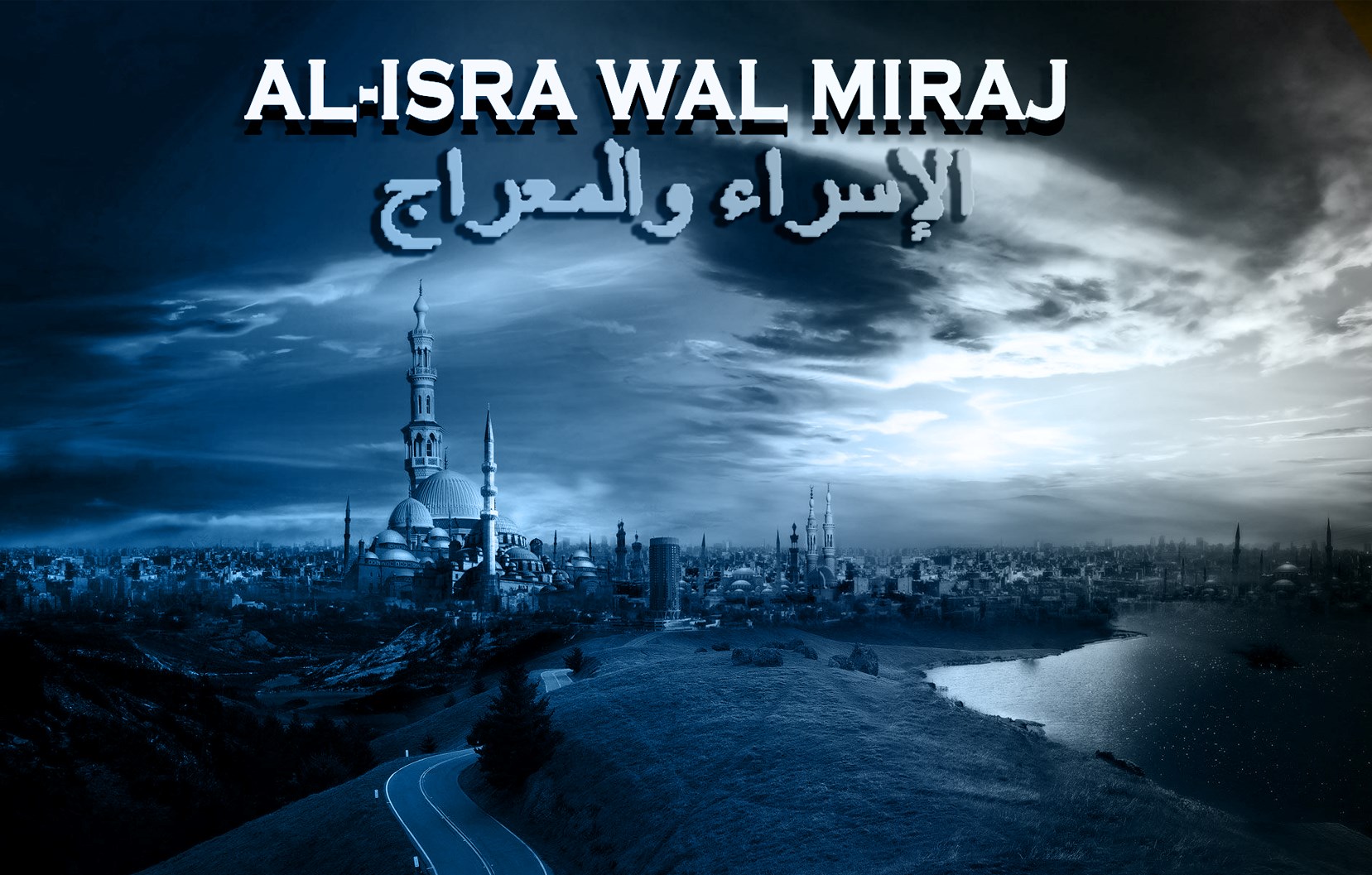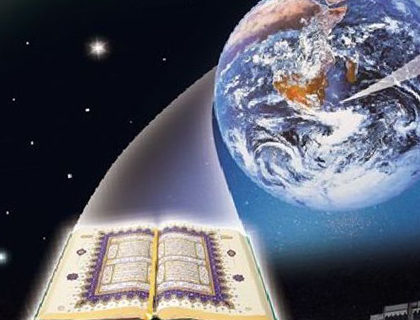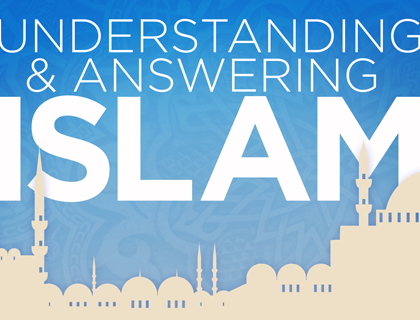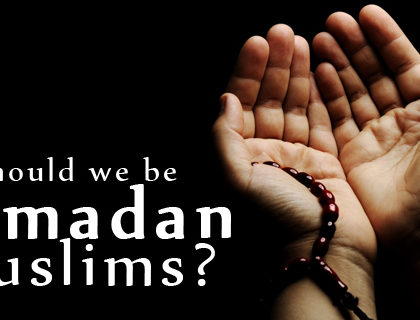Al Isra Wa Al Miraj

Glory be to He Who carried His servant by night, from the Holy Mosque to the Furthest Mosque, the precincts of which We have blessed. So that We might show him some of Our signs. Surely He is the All-Hearing, the All-Seeing. —-Sura al-Isra’ (17:1)
Introduction:
It is said that Al-Israa and Al-Mi’raj took place on Rajab 27th (exact date is NOT confirmed), of the 10th year after revelation. Prophet Muhammad (SAW)(SAW)(SAWS) made dua’a (supplication) to Allah (SWT) about the grief and humiliation he went through. Here it was how this happened.
Prophet, peace and blessings be upon him was depressed and rejected. His beloved wife Khadija (ra) a source of comfort and support had died. His uncle Abu Talib his second father, a pillar of strength who defended him against the vicious attacks of his enemies, had also died. His mission to Taif was unsuccessful. He tried to invite people to Islam, but in hateful and humiliating retaliation, they had sent their children after him, throwing rocks on him until his shoes filled with blood. Indeed, and this is when he made his most famous call (Du’a) to Allah:
“O Allah! I complain to You of my weakness, my scarcity of resources and the humiliation I have been subjected to by the people. O Most Merciful of those who are merciful. O Lord of the weak, and my Lord too. To whom have you entrusted me? To a distant person who receives me with hostility, Or, to an enemy to whom you have granted authority over my affair? So long as You are not angry with me, I do not care. Your favor is of a more expansive relief to me. I seek refuge in the light of Your Face by which all darkness is dispelled and every affair of this world and the next is set right, lest Your anger or Your displeasure descends upon me. I desire Your pleasure and satisfaction until You are pleased. There is no power and no might except by You.”
He said that after he got stoned and the blood was running down onto his feet… how… beautiful. And with this du’a it is said that the heavens shook. It was truly a Year of sadness.
It was in this context that the Prophet Mohammed (peace and blessings be upon him) was taken up to the heavens in a miraculous journey known as Al-Isra Wa Al-Miraj . This took place on the 27th (app) day in the month of Rajab, about 620 AD, when he rose in the middle of the night to visit the Sacred Mosque in Makkah. After a time of worship he fell asleep near the Ka’aba. The angel Gabriel came to him and woke him from his slumber.
Allah (swt) sent the prophets as a mercy to the slaves and supported them with miracles to indicate the truthfulness of their message. Of all the prophets, our Prophet, Muhammad (saw) was blessed with the most miracles and Al isra wa al miraj are among the many miracles.
Before the Prophet took this night journey, the ceiling of the house in which he was staying was opened, and angel Jibril (A. S.)descended. He cut open the chest of Muhammad (saw) and washed it with Zamzam water. Then he emptied something from a container into the chest of the Prophet (saw) to increase his wisdom and to strengthen his belief. This was done to prepare the Messenger of Allah for what he had yet to see in Jannah.
Al-Isra’:
After the Prophet performed his Isha salat, Jibril (A. S. )came to him with a white animal, slightly larger than a donkey yet smaller than a mule. This animal is the buraq,–one of the animals in Jannah. Jibril (A. S.) held the buraq by his ear and told the Prophet to mount it. When the buraq was mounted, the Prophet (saw) set forth.
The buraq is a very fast animal; the length of the buraq’s stride is even further distance one’s eye can see. The Prophet and Jibril (A. S.) arrived to a land with palm trees. Jibril (A. S.) told the Prophet to dismount and pray, so the Prophet dismounted the buraq and prayed two rakas. Jibril (A. S.) asked him, “Do you know where you prayed?” and the Prophet answered, “Allah knows best.” Jibril (A. S.) told him, “This is Yathrib; this is Taybah. “.” (These are two names for the city of Madinah.) Before the Prophet emigrated to al-Madinah, it was called Taybah and Yathrib. It earned the name al-Madinah after the Prophet emigrated to it.
The buraq continued with the Prophet and Jibril (A. S.) until they reached another place. Again Jibril (A. S.) told the Prophet to get down and pray. The Prophet dismounted there and prayed two rakas. Jibril (A. S.) informed the Prophet of the name of that place; it was Tur Sina’.
Once again the buraq took off with the Prophet and Jibril (A. S). It stopped, and the Prophet dismounted and prayed another two rakas. This was in Bayt Lahm, where Prophet Isa was born. Then the buraq continued with the Messenger of Allah until they entered the city of Jerusalem. There the Prophet went to Masjid al-Aqsa. Outside was a ring used by the Messengers of Allah to tie their animals. The Prophet tied his buraq to this ring. Then the Prophet entered the masjid where Allah assembled for him all the Prophets–from Adam to Isa. There was no place to set a foot. They all came especially to welcome Muhammad (SAWS). All the prophets stood aligned to pray. They were waiting for what Jibril (A. S.) had to say. Jibril (A. S.) told Muhammad (SAWS) to lead the prayer and they all prayed two Raka’a(s). This is an indication that Muhammad (saw) is higher in status than all the rest of the prophets.
1- On Prophet Muhammad’s journey from Masjid al-Haram to Masjid al-Aqsa, Allah enabled him to see some of His wondrous creations. Allah enabled the Prophet to see the Dunya like an old woman. But this old woman was wearing a lot of jewelry, but underneath you can see the reality of the world.
2- Allah enabled the Prophet to see Iblis. The Prophet saw something on the side of the road that did not dare to stand in his way or speak to him. Originally, Iblis was a believer and lived with the Malai’kah in Jannah. When Allah ordered the angels to prostrate (sujud) to Prophet Adam (as), Iblis was ordered to prostrate to him as well. The angels prostrated to Adam in obedience to Allah, because angels do not disobey Allah. Iblis, however did not obey. He said, “You created me out of fire, and You created him out of clay. How do You order me to prostrate to him?” So this objection by Iblis to the order of Allah was the first blasphemy he committed.
3- On his journey, the Prophet (saw) smelled a very nice odor. He asked Jibril (A. S.) about this pleasant scent and Jibril (A. S.) informed him this beautiful smell was coming from the grave of the woman who used to comb Pharaoh’s daughter’s hair. This woman was a pious believer. One day, as she was combing Pharaoh’s daughter’s hair, the comb fell out of her hand. She said, “Bismillah.” Pharaoh’s daughter asked her, “Do you have a god other than my father?” The woman said, “Yes. My Lord and the Lord of your father is Allah.” Pharaoh’s daughter told her father what happened. Pharaoh demanded this woman to leave Islam, but she refused. Pharaoh threatened to kill her children. He brought a huge pot of water and built a massive fire under it. When the water was boiling, Pharaoh brought her children and started to drop them into that pot one after the other. Throughout all this, the woman remained strong to Islam. When Pharaoh reached her youngest child–a little boy still breast feeding– she felt saddened for him. Allah enabled this child to speak. He said to his mother, “O Mother, be patient. The torture of the Hereafter is far more severe than the torture of this life, and do not be reluctant, because you are right.” The woman requested Pharaoh to collect her bones and the bones of her children and bury them in the same grave. Pharaoh promised that he would—he then dropped her into the boiling water. She died as a Mujahida. The good odor the Prophet smelled was coming from her grave and is an indication of her high status.
4- The Prophet also saw people whose lips and tongues were clipped with scissors made of fire. Jibril (A. S.) told the Prophet, “These are the speakers of sedition (fitna) who call people to misguidance.”
5- He also saw a bull that exited a very small door; the bull was then trying to return through that small opening. Jibril (A. S.) told the Prophet, “This is the example of the bad word–once spoken, it cannot be returned.”
6- The Prophet saw people grazing like animals, with very little clothing on their private parts. Jibril (A. S.) told the Prophet, “These are the ones who refused to pay zakat.”
7- The Prophet saw the Malai’kah smashing some people’s heads with rocks. These heads would return to the shape they were, and then the angels would smash their heads again–and so on. Jibril (A. S.) told the Prophet, “These are the ones whose heads felt too heavy to perform prayer–the ones who used to sleep without praying.”
8- On his journey the Prophet saw people who were fighting to eat some rotten meat–ignoring that there was fresh sliced meat nearby. Jibril (A. S.) told the Prophet, “These are people from your nation who leave out that which is permissible, and consume that which is forbidden (haram).” This was in relation to fornicators, the ones who left out the permissible (marriage) and committed sins (fornication).
9- Also, the Prophet saw people, who were drinking from the fluid coming from the bodies of the fornicators, (water mixed with blood). Jibril (A. S.) indicated to the Prophet these were the ones who were drinking the alcohol which is prohibited in this world.
10- The Prophet saw people scratching their faces and chests with brass finger nails. Jibril (A. S.) said, “These are the examples of those who commit gossip (ghibah).”
Al-Miraj:
After the Prophet took this night journey from Masjid al-Haram to Masjid al-Aqsa, he ascended to the heavens. The Prophet ascended to the heaven on stairs, called al-mirqat, one step is made of gold and the next of silver, and so on. The Prophet walked up these stairs until he reached the first heaven. When the Prophet and Jibril (A. S.) arrived at the first heaven, Jibril (A. S.) requested the gate to be opened. The angel guarding that gate asked Jibril (A. S), “Who is with you?” Jibril (A. S.) answered, “It is Muhammad.” The angel asked Jibril (A. S), “Is it time for him to ascend to the heaven?” Jibril (A. S.) said, “Yes.” So, the gate was opened for him, and Prophet Muhammad (SAW) entered the first heaven.
There, Prophet Muhammad (SAW) saw Prophet Adam. To Adam’s right, the Prophet saw some bodies, and to Adam’s left, other bodies. If Adam would look to his right he would laugh, and if he would look to his left he would cry. Adam was seeing the souls of his descendants. Those on his right were his descendants who would die as believers and those on his left were his descendants who would die as non-believers.
Then the Prophet ascended to the second heaven. In this second heaven was where Prophet Muhammad (S.A.W) saw Prophets Isa and Yahya. Isa and Yahya were cousins; their mothers were sisters. They welcomed the Prophet and made dua’ for him for good things. The Prophet ascended to the third heaven, where he found Prophet Yusuf. Prophet Yusuf was extremely handsome. Allah bestowed half the beauty on Yusuf. Yusuf received the Prophet (s.a.w) with a warm welcome and also made dua` for him for good things.
Then the Prophet (s.a.w) ascended to the fourth heaven, where he found Prophet Idris. In the fifth heaven, the Prophet saw Harun, the brother of Prophet Musa. In the sixth heaven, he encountered Prophet Musa. Each of these Prophets received Prophet Muhammad (SAW) with a warm welcome and made dua for him for good things.
Then the Prophet ascended to the seventh heaven, and that is where our Messenger saw Prophet Ibrahim. Prophet Ibrahim is the best of the prophets after our prophet, Muhammad (s.a.w). The Prophet (s.a.w) saw Prophet Ibrahim with his back against al-Bayt al-Mamur. To the people in Jannah, al-Bayt al-Mamur is like the Kabah to us. Every day 70,000 Malai’kah go there; perform their worship and leave. The next day another 70,000 angels go, come out, and never return. This will continue until the Day of Judgment. This shows us the great numbers of angels, every day there are 70,000 Malai’kah entering and leaving and not be able to have another turn. There numbers are far more than all the humans and jinns together.
The prophet (SAW) saw scenes as he ascended. He saw men and women in front of whom there was an edible and attractive dish of meat, but they abandoned it and ate foul meat instead and they went on devouring it. The Prophet (SAWS) asked Jibril (A. S.) who they were and he replied, “These are the adulterers; they leave the halal (permissible) good meat and eat foul haram (sinful) meat instead.” Bear in mind that this is not their punishment in Hell; but rather their punishment after their death only.
The Prophet (SAWS) also saw as he went on people in whose mouth balls of fire were crammed. He asked Jibril (A. S.) who they were and he answered, “These are the ones who steal the property of orphans unlawfully”. This is clear in the ayah where Allah (SWT) says what can be translated as, “Surely the ones who eat the riches of the orphans unjustly, they surely only eat (up) Fire in their bellies and will roast in a Blaze”? (4:10).
The Prophet (SAWS) also heard the Jannah’s sweet voice as it addresses Allah saying, “Oh Lord, where are my dwellers? I have prepared silk, trees water, myself and plants are in abundance. Where are my dwellers?”
The Prophet (SAWS) also saw people with brass nails with which they scratched their faces and chests. He asked Jibril (A. S.) who they were and he answered, “These are the ones who gossip about people in their absence and whose speech disgrace a woman’s honor.”
The Prophet (SAWS) and Jibril (A. S.) kept ascending, until they reached a point where Jibril (A. S.) stopped. That was the farthest place Jibril (A. S.) was allowed to reach; it was the Lote-Tree (The Tree of the End) which means the top or the point that creatures do not go beyond. No creature, be it an angel, a jinn, or a human, can walk beyond this tree. Jibril (A. S.)said, “If you walk further, you will penetrate, but if I walk further, I will incinerate.” The Prophet (SAWS) said that Jibril (A. S.) at that moment looked more like a moth-eaten carpet from fear of Allah. Imagine Jibril (A. S.) so humble and modest out of Allah’s fear. Prophet (SAWS) only saw Jibril (A. S)’s real physical appearance twice; once in the cave of Hiraa’, and once that day.
In the seventh heaven, Prophet Muhammad (SAW) saw Sidrat al-Muntaha–a very big tree of sidr. Each of the fruits of this tree was very large. The leaves of this tree are similar to the ears of the elephants. Sidrat al-Muntaha is an extremely beautiful tree. It is visited by butterflies made of gold. When these butterflies gather on this tree, its beauty is beyond description.
Then the Prophet (saw) entered Jannah and saw examples of how the people of Jannah would live. Most of the people in Jannah were the poor people on earth.
The Prophet also saw Malik, the angel in charge of Jahanam. Malik did not smile at the Prophet when he saw him, and the Prophet asked why. In answer to the Prophet’s question, Jibril (A. S.)said, “Malik did not smile since the day Allah created him. Had he smiled for anyone, he would have smiled for you.”
In Paradise, the Prophet saw some of the bounties Allah prepared for the inhabitants of Paradise. He saw the Hur ul-In: the females Allah created, who are not humans or jinn. They are in Paradise and will be married to those men Allah willed them to marry.
The Prophet saw the wildan ul-mukhalladun: creations of Allah who are not human, jinn, or angels. They are a very beautiful creation of Allah whose appearance is like laid-out pearls. They are servants of the inhabitants of Paradise. The least in status of the People of Paradise will have 10,000 wildan ul-mukhalladun to serve him. Each one of them would carry a tray of gold in one hand and a tray of silver in the other hand.
The Prophet saw the Throne (Arsh), which is the ceiling of Paradise. The Throne is the largest creation of Allah in size; Allah did not create anything bigger in size than it. The seven heavens and the earth in comparison to the Kursiyy, are like a ring thrown in a desert, and the Kursiyy in comparison to the Throne, is like a ring thrown in a desert. The seven heavens and the earth in comparison to the Throne are like a seed of mustard compared to the ocean. Allah created the Throne as a sign of His Power. Then the Prophet ascended beyond Paradise. He reached a place where he heard the creaking of the pens used by the angels who are copying from the Preserved Tablet.
It is at that location Prophet Muhammad (SAW) heard the Kalam of Allah, which is an attribute of the Self of Allah. He heard the Kalam of Allah which does not resemble our speech. It is not a letter after letter or a word that comes after another word. Rather, it is an attribute of Allah which is eternal and everlasting. It does not resemble our attributes. It is an attribute of Allah, and it does not resemble the attributes of the creation.
The Prophet (SAWS) said that he reached a place where he could hear the creaking of pens as they wrote the destinies of mankind. There is a great controversy among scholars whether Prophet Muhammad (SAW) saw Allah (SWT) or not. The Prophet (SAW) himself does not mention any details on this subject. The Prophet (SAW) got there and Allah (SWT) said to him, “Muhammad! I have enjoined on your Ummah fifty prayers daily.”
The Prophet (SAWS) said, “Then the prayers were enjoined on me: They were fifty prayers a day. When I returned, I passed by Musa (AS) who asked (me) to make supplication (dua’) to his Lord to ease the obligation of fifty (50) prayers, because his nation could not handle that. Musa said, “I have experience with the people of Israel, and I know your nation cannot bear that.” So the Prophet (s.a.w) asked Allah to lessen these prayers for his people. Out of fifty prayers only five prayers were eliminated. Once again, Musa told the Prophet to ask Allah to lessen the number of prayers. Nine times the Prophet made dua to Allah to lessen these prayers–until these prayers were 5 Obligatory Prayers.
Prophet (SAW) also saw our houses in Jannah. He says that the houses are made of blocks of gold and silver, the cement that sticks them together is made of pure musk, the pebbles are pearls, and its ceiling is Allah’s throne. Imagine that wherever you look up from your house, you will see Allah’s throne. Prophet Muhammad (SAW) was once asked who the lowest classes of the Jannah dwellers will be. He said that they are those who could walk in their properties for a thousand years without reaching their boundaries. Then, he was asked who the upper classes were, so he said that they are the ones who see Allah’s face day and night.
After he the Prophet (SAWS) saw Jannah, he descends to the Buraq and then he was brought home to Makkah. Some scholars said the Prophet’s journey took about one-third of the night. He then said that his pillow was as warm as it was when he left it, as if the trip was short. The next morning, Prophet Muhammad (SAW) woke up depressed and confused; he did not know whether to tell Quraysh about his journey or not, as the Surah explaining it was not revealed yet. Abu-Jahl walked near him and asked him what was wrong. Prophet Muhammad (SAW) started telling him what happened. Abu-Jahl then decided to seize the opportunity to ridicule the Prophet (SAWS) and his message and asked Prophet Muhammad (SAW) whether he would repeat the same story if he crowds the dwellers of al Ka’ba to which the Prophet (SAW) agreed. For the very first time, Abu-Jahl started to gather people to listen the Prophet (SAW) who narrated what happened with confidence. However, the people kept clapping their hands as a sign of disbelief mockery and saying, “We need a month to get there and back, and you are claiming you have done all this in one night?” They said to Abu Bakr, “Look at what your companion is saying. He says he went to Jerusalem and came back in one night.” Abu Bakr told them, “If he said that, then he is truthful. I believe him concerning the news of the heavens–that an angel descends to him from the heavens. How could I not believe he went to Jerusalem and came back in a short period of time–when these are on earth?” At that, the Companion, Abu Bakr, was called “as-Siddiq”–because of how strongly he believed what the Prophet said.
The people of Quraysh tried to challenge the Prophet (SAW), asking him to describe the Aqsa mosque to them. At that moment, the Prophet (SAW) somehow could not recall exactly what it looked like. Therefore, Allah (SWT) showed it to His prophet in a revelation and he started describing it to them as he saw it. In defiance, the people of Quraysh asked for another sign, to which the Prophet (SAWS) said that he saw a convoy on the way from the Aqsa mosque to Makkah, and that it was going to be late because some of their goods were stolen. Soon after that, what the Prophet (SAW) foresaw actually took place, but the people of Quraysh falsified his testimony and claimed that it was only magic.
Recommended Posts

A Brief Illustrated Guide to Understanding Islam
February 27, 2017

Learn – How to Become a Muslim
February 27, 2017

Should we be ‘Ramadan Muslims’?
February 27, 2017


Comments are closed.